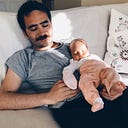Member-only story
Russell’s Paradoxes and the Mathematical Logic Battle Between David Hilbert and Kurt Gödel
The biggest debate among mathematicians started with Bertrand Russel’s “Does a set of all sets that don’t contain themselves contain itself?” question.
Although seemingly simple, mathematicians quickly found themselves in a silly predicament when answering this question. When you think about it, a set of non-self-containing sets is a set and does not contain itself. However, then, a logical error occurs when we add the set of non-self-containing sets to the set of non-self-containing sets.
I know it sounds impossible above, so I will explain Russel’s question using an example. Imagine thousands of people writing books. After a while, this cluster of books will get so massive that someone will have to catalog these books. However, even further down the line, the cluster of catalogs will also get massive as there will be many books about countless topics. For example, a catalog for mathematics books, one for the stories of the World Cup winners, one for cookbooks, and so on.
In 1960, when Paul Halmos wrote his book Naive Set Theory, he used an utterly beautiful book cover that…
